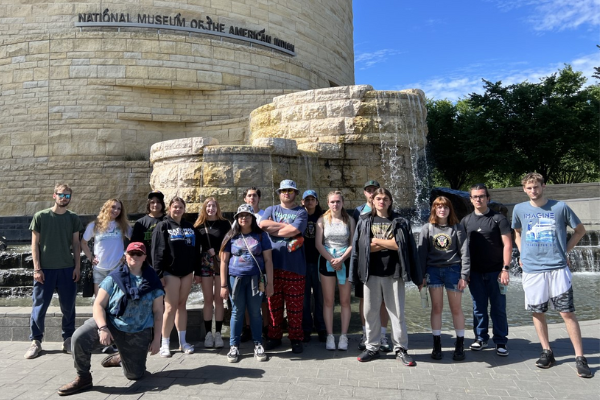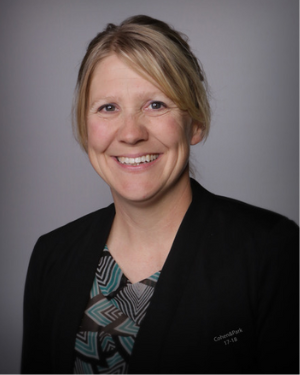When I came to Washington, DC, in March for the NASSP Advocacy Conference, I walked by the National Museum of the American Indian. I thought about what a great experience it would be for our Native students back in Lincoln County, OR, to have the opportunity to visit the museum as a way to wrap up their high school education. I just needed to figure out a way we could logistically make it happen.
Title VI Indian Education funds can be used for cultural activities and travel for students, but with COVID-19, much of that funding had gone unspent. Normally, the funds don’t carry over from year to year, but when we looked into the options with local, state, tribal, and federal officials, we got permission to put together a trip that would have otherwise been impossible for our students.
So, in June, after a long process of getting approvals and finalizing details, I traveled with 16 students and three chaperones for an exciting trip to our nation’s capital. We wanted to make sure we had plenty of adults along because this was really a unique experience for these students. Only a few of them had ever been on an airplane, and many had never stayed in a big hotel.

Current travel is hectic, and navigating that part alone was challenging, but our students were patient, kind, and so excited to be in a new city. This trip was unlike anything the students, or their families, had ever experienced, and many didn’t really know what to expect. Because of that, some eligible students decided not to go, and many also were already working full-time and couldn’t afford to take time off of work. One student said they initially didn’t want to go but their mother made them, and they said it turned out to be an amazing experience.
We were fortunate to take a walking tour of DC with Gregory Hindsley, an education program specialist for the U.S. Office of Indian Education. And we visited the National Museum of Natural History and the National Museum of American History in addition to the American Indian museum, and we met with a staff member from the office of U.S. Rep. Kurt Schrader (D-OR).
Our Native students come from many different tribes in addition to those mainly in Oregon (including the Siletz and Grand Ronde), so being at the American Indian museum gave them a chance to see their people and their history and their culture in ways that we don’t provide for them in Lincoln County. When we visited the other museums in DC, the students commented that they didn’t include much about Native history and culture. One goal of the trip was for them to share with the district things that they would have liked to have learned more about while they were in our Title VI program and schools. Their insights and experiences will help us in future planning.
At the end of each day, the students would meet for a debrief. Many said it was nice for them to be together with others who had similar experiences and backgrounds. One night, students called a grandmother of one of the attendees and had her on speaker so they could ask her lots of questions about what they had seen at the museum and about where they live.
Based on the success of this trip, we definitely want to do it again next year. Unfortunately, we won’t have the same Title VI funds available, but we hope that by seeking out local and state grant funds, we should be able to do it. For our next trip, I would like us to go earlier in the year, probably in April or May, so the students have time to come back well in advance of graduation. Since all the students we took this year had already graduated, they didn’t have the opportunity to talk about the trip with their classmates.
Felecia Howell, an Indian education specialist for the district who traveled with the group, summed up the experience this way: “This trip was more than visiting the beautiful museums. It gave students the chance to find themselves and realize how powerful they are and how important it is for them to empower each other and be proud of who they are and where they come from.”
For more on the NASSP Advocacy conference, visit https://www.nassp.org/nassp-advocacy-conference/.

